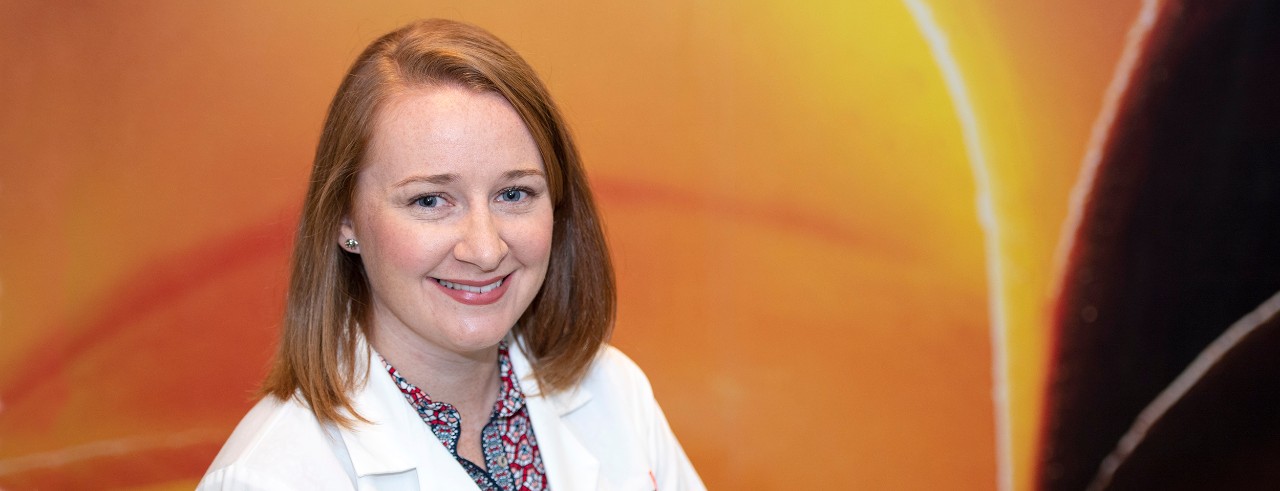
UC scientist studies PTSD with Brain and Behavior Research Foundation grant
Sounds, smells and places can trigger PTSD
Rachel Moloney, PhD, postdoctoral fellow in the University of Cincinnati (UC) College of Medicine Department of Pharmacology and Systems Physiology, was awarded a two-year Young Investigator Grant of $70,000 from the Brain and Behavior Research Foundation (BBRF).
Grant work began in January 2019 and it provides support for young scientists conducting neurobiological research. Moloney is an investigator in the Laboratory of Stress Neurobiology run by James Herman, PhD, Flor van Maanen Professor of Pharmacology and chair of the Department of Pharmacology and System Physiology.
Moloney is investigating the neuro-circuitry underlying fear responses and how this circuitry can become impaired after trauma leading to long-term consequences including post-traumatic stress disorder (PTSD) and other anxiety disorders.
She says PTSD exhibits differently in each individual, but that understanding the commonalities and circuitry that drives the disorder will help researchers and physicians understand how to treat it.
“PTSD is far more common than people think,” says Moloney. “When we think about PTSD, we may immediately think of the veteran population, but actually it can develop in many individuals.” It can occur after a physical or sexual assault or any sort of acute trauma such as losing a family member to suicide or other reasons. Anything that is very traumatic in an acute situation, something completely unexpected that comes out of nowhere and knocks you for a loop can lead to the development of PTSD symptomology, Moloney says.
“When individuals experience a trauma such as an assault, they tend to especially remember the context or environment around them at that moment in time,” says Moloney. “You remember the environmental conditions around you like a sound or smell or place.”
Moloney says these are contextual cues that she is interested in understanding in the brain. Researchers want to know how does the brain process those contextual cues and lead to people avoiding them in the future. Exaggerated fear and avoidance of seemingly innocuous contexts are common features of PTSD and can be disabling for patients, impairing their quality of life.
“I am particularly interested in an area of brain known as the bed nucleus of the stria terminalis which is involved in how we process and respond to our environment including our response to traumatic stimuli,” says Moloney, who is based on UC’s Reading campus.
Moloney employs translationally relevant preclinical models to learn more about the circuitry of PTSD using novel cutting edge techniques such as DREADDs (designer receptors exclusively activated by designer drugs).
“We can direct the expression of these DREADDs to neurons in areas of interest in the brain,” says Moloney. “This allows us to activate and inhibit these brain areas and understand their function in driving behavioral fear responses.”
She says that if her research can lead to better understanding of the brain’s circuitry and its role in PTSD that same knowledge could be helpful in developing better treatments for other anxiety disorders such as generalized anxiety disorder and panic disorder.
Photo by Colleen Kelley/AHC
Related Stories
Love it or raze it?
February 20, 2026
An architectural magazine covered the demolition of UC's Crosley Tower.
From research to resume: Grad Career Week prepares students for career paths
February 20, 2026
Graduate students at the University of Cincinnati will explore how their academic and creative work translates into professional success during Grad Career Week, March 2–6, a week-long series of workshops, networking opportunities, and skill-building sessions hosted by the Graduate College.
Social media linked to student loneliness
February 20, 2026
Inside Higher Education highlighted a new study by the University of Cincinnati that found that college students across the country who spent more time on social media reported feeling more loneliness.
